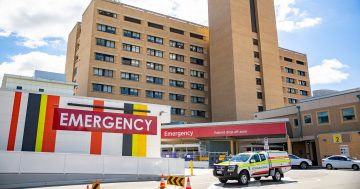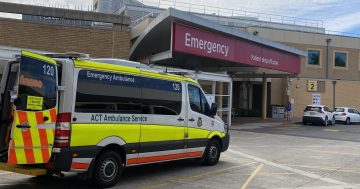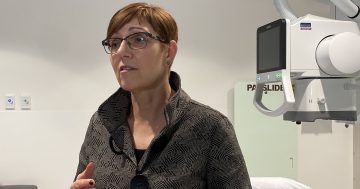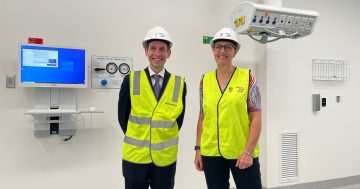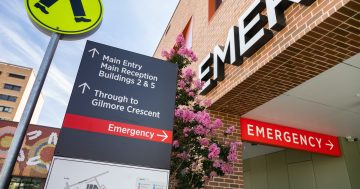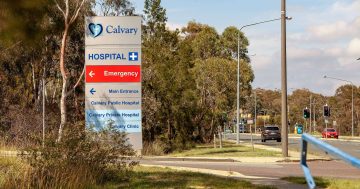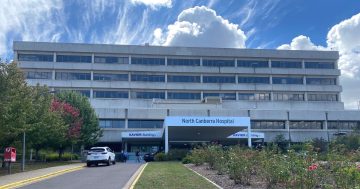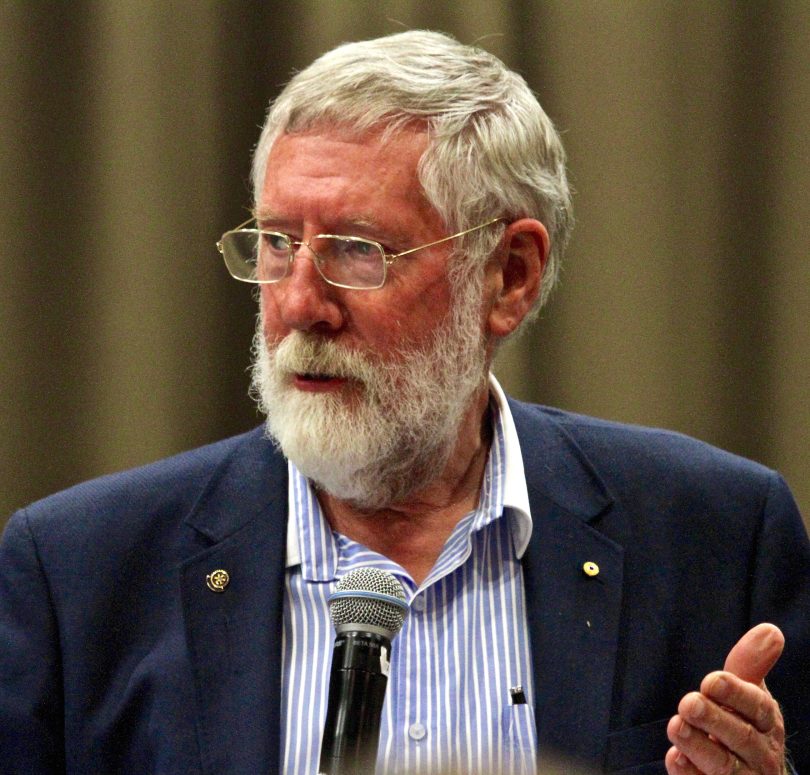
Former ACT independent Health Minister Michael Moore has blasted the government’s health performance over the last two decades. Photo: Dominic Giannini.
Former independent Health Minister Michael Moore has delivered what he described as a “damning indictment” on the state of the ACT’s public health system as it continues to grapple with systemic bullying and harassment, as well as long emergency and elective surgery wait times.
His remarks follow publication of the Australian Medical Association’s (AMA) annual report in early November which again confirmed the ACT’s decade-long streak as the worst performer in the country for urgent emergency department wait times.
According to the report, only 34 per cent of Canberra’s urgent emergency department patients are seen within the half-hour benchmark compared to the national average of 67 per cent. According to the government’s latest 2020-21 data, this has now dropped to just 29 per cent.
Mr Moore – who served as the independent Minister of Health and Community Care from 1998 to 2001 in Kate Carnell’s and then Gary Humphries’ Liberal minority governments – said two fundamental issues are affecting the ACT’s performance, “one is poor financing and the sustained funding cuts to the health system”. The second issue, he explained, is the day-to-day management of health.
Mr Moore acknowledges the strain COVID-19 has put on the Territory’s health system and pays credit to it for having operated so smoothly throughout the pandemic, as did the AMA’s report. But he doesn’t think this can be used as an excuse for why the emergency department wait times aren’t improving, given it’s an issue that’s now been dragging on for two decades.
Mr Moore also pointed out all other states have been forced to contend with COVID-19, not just the ACT.
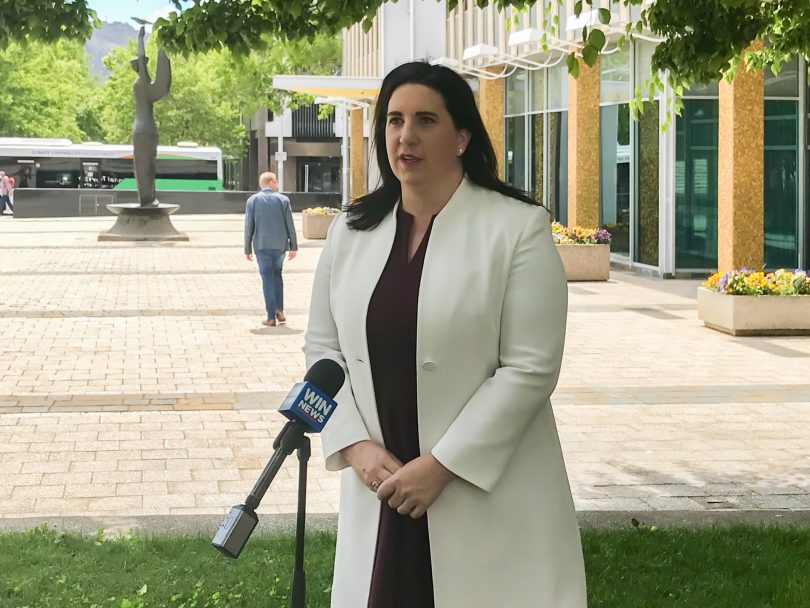
Opposition health spokesperson Giulia Jones said she was pleased to have independent voices joining her. Photo: Lottie Twyford.
Opposition spokesperson for health Giulia Jones has been outspoken for some time about what she says is inadequate funding leading to a strain on the ACT’s public healthcare system.
She’s now pleased that an independent voice has echoed some of her concerns.
“There’s no reason we can’t get the Canberra Hospital performing better,” Mrs Jones said, although she’s not optimistic right now.
Only this week, Canberra-region resident Meagan Quattromani took to Facebook to share a recent experience at the Canberra Hospital Emergency Department.
She alleges she waited for two full days in the ED with her husband, Sam, who had a severed finger. They’d originally presented at a different hospital but had been told to come to Canberra as a plastic surgeon consult was required.
They arrived after 6 pm and were told to come back the next day. For the next two days, they arrived at the hospital between 6:45 am and 7 am. Sam was unable to eat and drink as he waited for surgery.
On the third day, Sam was booked in for surgery at 4 pm. After such a long wait, Meagan said she was concerned about possible infection and his mental health after two days of being unable to eat, drink, or take his usual medication.
During this time, both Meagan and Sam had to stay in a motel in Canberra as they lived more than an hour away from the hospital.
Others took to the comments on the original Facebook post to share their own stories about spending days on end in the Emergency Department waiting to be seen.
Minister for Health Rachel Stephen-Smith said real inroads had been made into responding to some of the issues seen at emergency departments, and hearing stories like this was “frustrating”.
“It’s always disappointing for me when I hear about those kinds of consumer experiences … and that is why we have invested in increasing our emergency surgery capacity,” she explained.
“We are responding directly to those experiences.”
She’s previously admitted that hospitals are stretched at present but pointed to the $23 million funding set aside in the ACT budget for Canberra hospital emergency departments over the next four years.
Increasing and expanding the use of telehealth services and ensuring better coordination and cooperation between community services and public health systems will also help ease the burden on emergency departments, Ms Stephen-Smith said.












